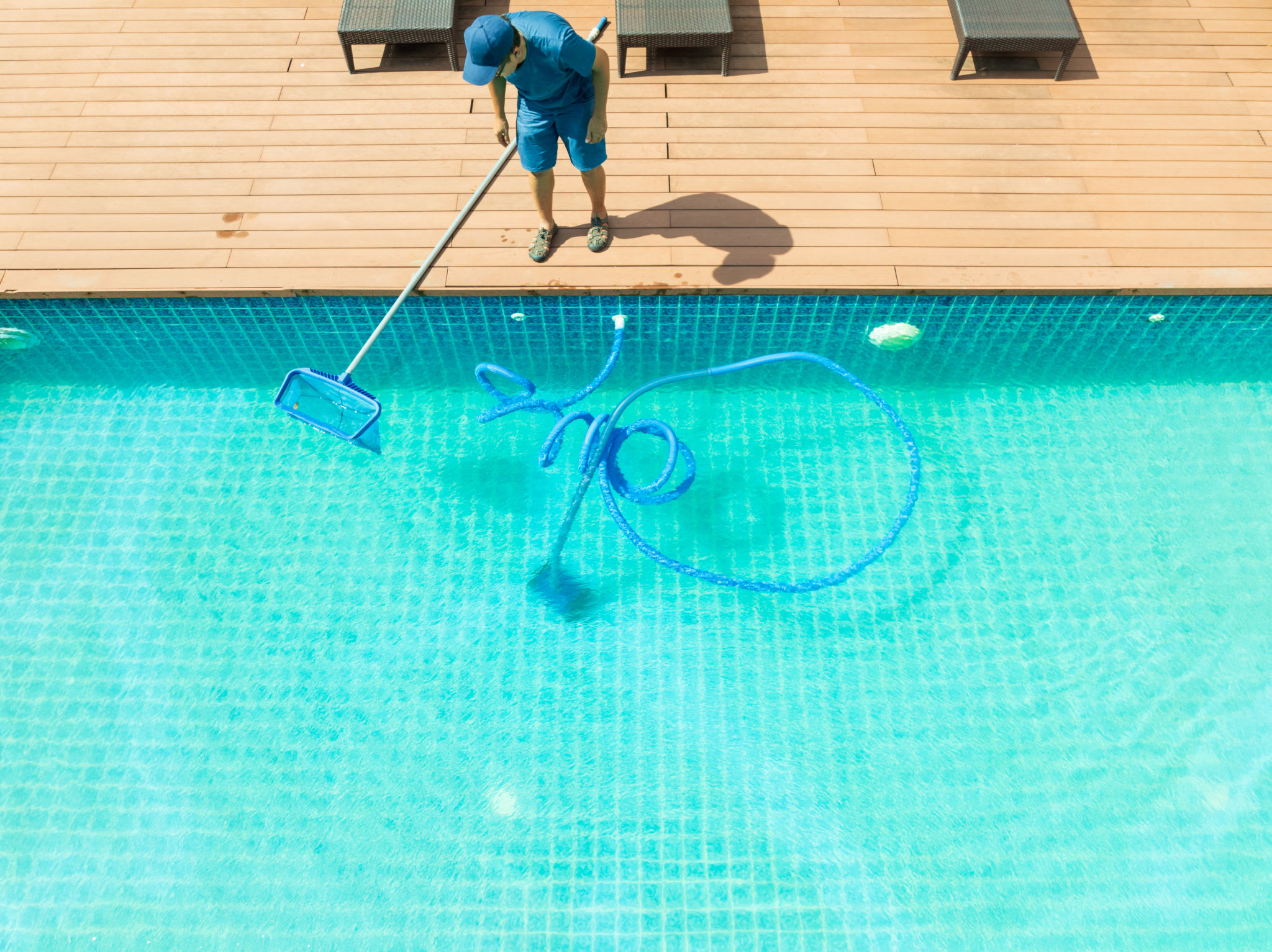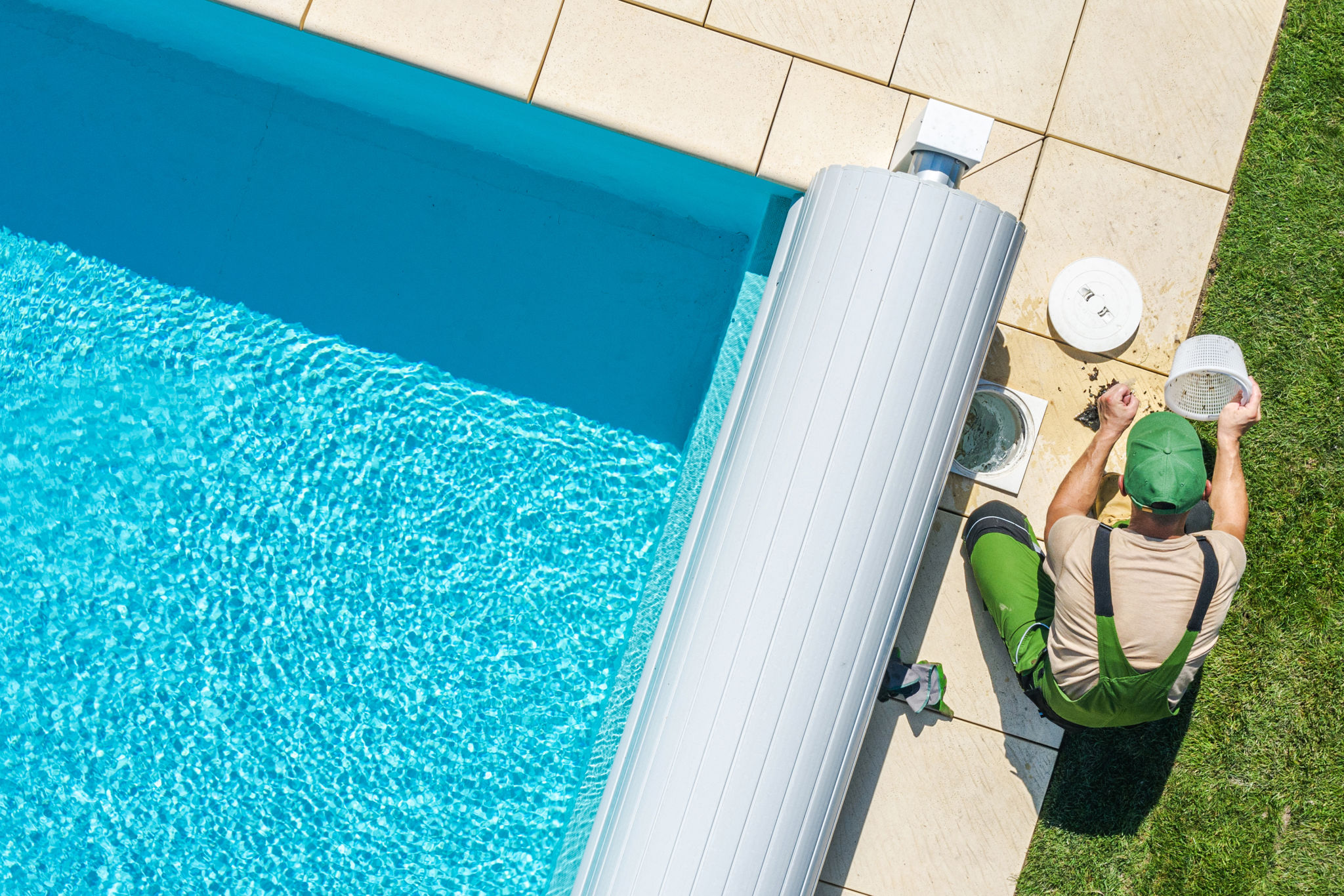Keeping Your Pool Pristine: Happy Splash Pool Cleaning Tips
Understanding the Importance of Regular Pool Maintenance
Owning a pool is a delightful luxury, but it comes with the responsibility of regular maintenance to ensure it remains a safe and enjoyable space. A well-maintained pool not only enhances the aesthetic appeal of your backyard but also prolongs the life of the pool structure and equipment. Regular cleaning and maintenance prevent the growth of algae, bacteria, and other harmful organisms that can take the joy out of your swimming experience.
To keep your pool pristine, it's important to develop a consistent cleaning routine. This includes skimming debris off the surface, brushing the walls, vacuuming the floor, and maintaining proper chemical balance. By staying on top of these tasks, you'll ensure that your pool remains a sparkling oasis for relaxation and fun.

Effective Skimming and Brushing Techniques
Skimming the surface of your pool is one of the easiest ways to keep it clean. Using a long-handled net, remove leaves, insects, and other debris daily. This simple step can significantly reduce the risk of clogged filters and dirty water. Alongside skimming, brushing the walls and floor of your pool helps prevent algae buildup and keeps surfaces smooth.
When brushing your pool, always use a brush suitable for your pool type. For concrete pools, a stiff-bristled brush is effective, whereas vinyl or fiberglass pools require a softer brush to avoid scratches. Incorporating these techniques into your routine ensures that dirt and algae don't stand a chance.

Maintaining the Chemical Balance
Keeping your pool's chemical levels balanced is crucial for both safety and cleanliness. The key components to monitor are pH levels, alkalinity, and chlorine. Ideally, pH levels should be between 7.2 and 7.8 to ensure that chlorine works effectively. Alkalinity acts as a buffer for pH fluctuations, so maintaining levels between 80 and 120 ppm is recommended.
Testing kits or strips are convenient tools that help you keep track of your pool's chemical levels. Regular testing—at least once a week—is essential. If adjustments are necessary, always add chemicals in small increments to avoid overshooting. Proper chemical balance not only keeps your water clear but also protects swimmers from skin irritation.

Vacuuming for a Spotless Pool Floor
Even with regular skimming and brushing, debris can settle at the bottom of the pool. Vacuuming is an effective way to remove this debris and maintain a spotless pool floor. Manual vacuuming allows for thorough coverage as you guide the vacuum head across the pool floor, while automatic vacuums offer a hands-free cleaning option.
When vacuuming manually, ensure you move slowly to avoid stirring up debris that could cloud the water. For automatic vacuums, set them on a regular schedule to keep your pool consistently clean without extra effort. Both methods will help extend the life of your pool's filtration system by reducing strain from excessive dirt and debris.
Seasonal Maintenance Tips
While regular maintenance is crucial year-round, seasonal changes require specific actions to keep your pool in top condition. In spring, opening your pool requires deep cleaning and shock treatments to prepare for increased usage. Throughout summer, focus on consistent cleaning routines to handle higher bather loads.
As fall approaches, remove fallen leaves promptly to prevent staining and clogging. When winterizing your pool, thoroughly clean it before covering and adjust chemical levels to prevent damage during colder months. These seasonal adjustments ensure your pool remains pristine and ready for use when warm weather returns.

Hiring Professional Pool Cleaning Services
While regular DIY maintenance is effective, hiring professional pool cleaning services offers added benefits. Professionals are equipped with advanced tools and expertise to handle complex issues that may arise. They can also provide valuable advice on maintaining equipment like pumps and heaters.
Consider scheduling professional cleanings at least once or twice a year to ensure thorough inspections and maintenance of your pool system. This proactive approach can help identify potential problems early, saving you time and money in the long run. By combining professional services with regular personal upkeep, your pool will remain in excellent condition all year round.
